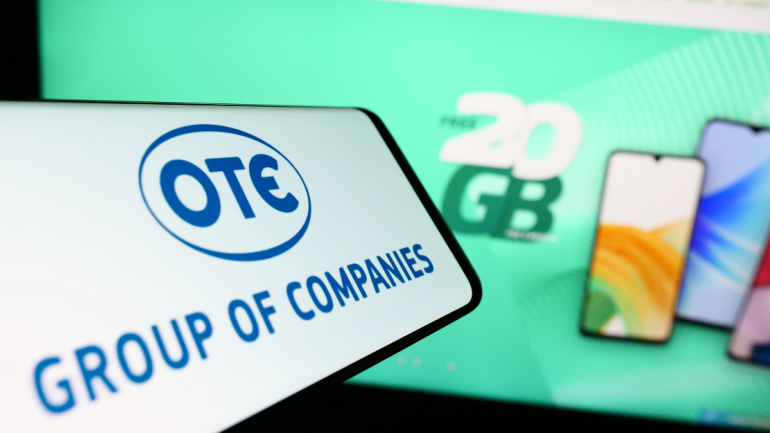As Algar Telecom turns 70, the prominent Brazilian ISP continues to seize market share amidst 10,000 competitors. Serving 1.5 million customers across Brazil, they masterfully intertwine fiber broadband, wireless, and content services, satisfying the divergent needs of B2B and B2C consumers. The strategic blend of high-tech infrastructure and seamless customer experience propels Algar’s journey, pivoting on the indomitable broadband, termed as the “cardinal element”. Additionally, foreseeing the potential of the imminent 5G rollout, Algar’s game plan involves marrying fixed-line connectivity with wireless services, laying a robust groundwork for the future.
Shell Energy faces a £1.4m fine imposed by telecom regulator Ofcom for a serious breach in communication service rules. Over 70,000 customers weren’t correctly notified about end-of-contract and best tariff options, a grave misstep underscoring the importance of clear, timely communication in service provision. Substantiating the matter, some customers were even misinformed about costs post-contract, leading to unwarranted overpayments.
When it comes to digitization strategies, providing superior customer service is paramount, a concept particularly relevant in the telecom field. Saudi Telecom Company (stc), underlines this belief by revitalizing its customer experience through a strategic collaboration with Huawei. Transforming its big data platform into a Customer-Centric Platform (CCP), offers a unified view of customer data, leading to enhanced marketing segmentation and customization. Improved efficiency and data value are already showing dividends with marked reduction in customer churn and accelerated return on investment.
OneWeb, a Eutelsat entity, gained India’s coveted regulatory endorsement to usher in its satellite broadband service, evoking enthusiastic response from Eutelsat’s co-chair, Sunil Bharti Mittal. This development signifies a new era for India’s internet coverage in line with the Prime Minister’s digital vision. However, a crucial spectrum allocation by the government awaits, making OneWeb’s journey not entirely smooth sailing. An array of procedural and regulatory hurdles demands navigation, alongside competing market perspectives delaying the process.
Greek telecommunications heavyweight OTE appears to be changing course, with whispers abuzz of pivotal shifts in its future business plans. The rumored centerpiece is the potential sale of its Romanian mobile operations, Telekom Romania Mobile, to Quantum Projects Group. This points towards a strategic refocusing on OTE’s extensive Greek operations, signaling a departure from the international stage.
Global mobile core network market’s slowest quarterly growth since 2017, according to Dell’Oro, is attributed to tough political and economic conditions and slower 5G network rollouts. Distinctively unstable trends mark the sector, with Huawei holding the lead in provider rankings for Q3.
In a strategic move to meet the escalating demands of the 5G era and burgeoning broadband connectivity in India, Nokia has joined forces with Bharti Airtel for a significant overhaul of the optical network infrastructure. The project aims to deliver ‘massive capacity,’ enhanced reliability, and cost efficiency for enterprises, operators, and hyperscalers in the region.
5G technology is quickly escalating into an exciting, innovative space, largely due to a process called network slicing. This technique enables a vast number of dynamic network slices, each with unique attributes defined by its user. Despite being in the primary stages, an array of business opportunities are on the horizon like gaming, vehicle-to-everything (V2X), IoT, and mobile edge computing, as the technology advances. Critical remote services, such as remote robotic surgeries requiring ultra-reliability over latency, become possible with robust and reliable 5G slices.
The online retailer, musicMagpie, recently confirmed preliminary dialogue with telecom giant BT and investment firm Aurelius, creating ripples in the wireless tech marketplace. While BT harbors plans to extend its EE customer division’s footprint in the pre-owned smartphone market, musicMagpie’s potential sale throws a thrilling spin to proceedings. It’s a pivotal situation in a rapidly evolving telecommunications world, requiring stakeholders to recalibrate their strategies to mirror the dynamic customer needs. Meanwhile, noteworthy events unfold elsewhere in the sector, promising fascinating updates.
Japanese telecommunications giant NTT Docomo is set to revolutionize its commercial network with the adoption of Nokia’s Open RAN compliant 5G AirScale baseband kit. The comprehensive deployment includes both Centralized Unit (CU) and Distributed Unit (DU) software, emphasizing Nokia’s industry leadership in the mobile communication sector.













